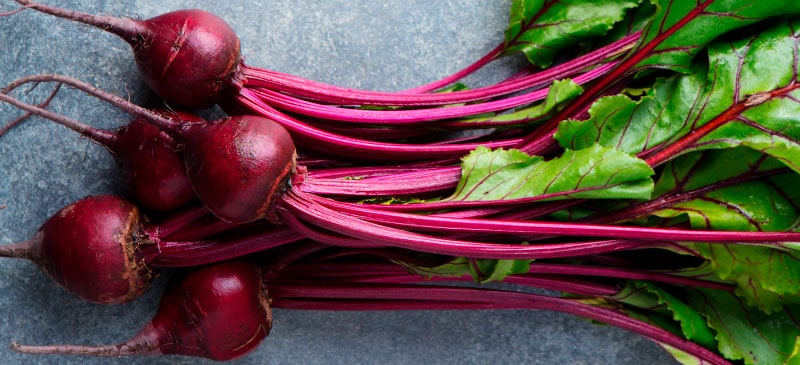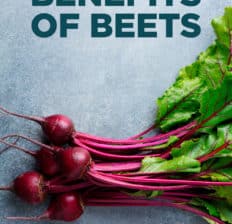This Dr. Axe content is medically reviewed or fact checked to ensure factually accurate information.
With strict editorial sourcing guidelines, we only link to academic research institutions, reputable media sites and, when research is available, medically peer-reviewed studies. Note that the numbers in parentheses (1, 2, etc.) are clickable links to these studies.
The information in our articles is NOT intended to replace a one-on-one relationship with a qualified health care professional and is not intended as medical advice.
This article is based on scientific evidence, written by experts and fact checked by our trained editorial staff. Note that the numbers in parentheses (1, 2, etc.) are clickable links to medically peer-reviewed studies.
Our team includes licensed nutritionists and dietitians, certified health education specialists, as well as certified strength and conditioning specialists, personal trainers and corrective exercise specialists. Our team aims to be not only thorough with its research, but also objective and unbiased.
The information in our articles is NOT intended to replace a one-on-one relationship with a qualified health care professional and is not intended as medical advice.
8 Beets Benefits You May Not Believe
January 12, 2023

Most people have pretty strong feelings about beets. Some love their naturally sweet and earthy flavor while others loathe them in just about any form — even beetroot juice. Regardless of where you fall on the spectrum, however, there’s no denying that there are some amazing beets benefits packed into this vibrant vegetable.
Besides being loaded with vitamins and minerals, they are also high in other health-promoting compounds like antioxidants, carotenoids and nitrates that help amplify the number of beets benefits even more. Plus, they’re super versatile and can easily be incorporated into a wide variety of delicious dishes.
Why are beets good for you, and is it OK to eat beets every day? Keeping reading to learn more about the possible beets benefits and side effects, plus some easy ways to incorporate this nutritious veggie into your diet.
Benefits
1. High in Antioxidants
Antioxidants are compounds that help neutralize harmful free radicals, preventing oxidative stress and damage to your cells. Some studies have found that antioxidants could protect against many types of chronic disease, such as heart disease, cancer and diabetes.
Beets are naturally high in disease-fighting phytonutrients, antioxidants, vitamins and trace minerals. In fact, they are an excellent source of a certain type of phytonutrients called betalains, which have powerful antioxidant and anti-inflammatory properties and supply many of the health benefits of beets.
Betalains also act as natural plant pigments and are responsible for providing beets with their vibrant color. In vitro studies have found that these potent pigments may help protect against the development of certain types of cancer and disease.
Plus, beet greens also contain a good amount of lutein and zeaxanthin, two carotenoids that play a central role in eye health and can reduce the risk of conditions like macular degeneration and cataracts.
2. Help Relieve Inflammation
In one animal model, beetroot supplementation was able to reduce oxidative stress and inflammation in rats. A human study also confirmed the anti-inflammatory properties of beets, showing that both cooked beets and beetroot juice were able to lower levels of inflammatory markers in people with high blood pressure.
3. Promote Heart Health
One of the biggest benefits of beet juice is its ability to promote heart health. Beets are a rich source of dietary nitrates, which act as vasodilators to aid in improving blood flow and reducing blood pressure.
A human study published in the British Journal of Nutrition showed that beetroot juice helped significantly lower both systolic and diastolic blood pressure in participants after just 24 hours. Another small human study in 2017 found that beetroot juice helped lower levels of bad LDL cholesterol in people with uncontrolled blood pressure.
4. Aid in Detoxification
Beet juice benefits liver function, helpinp keep it working efficiently so it can continue to keep your body free of toxins. One animal model out of Poland showed that treating rats with beetroot helped prevent oxidative stress and reduced lipid peroxidation, a common marker of cell damage, by a whopping 38 percent.
Similarly, an animal model published in the journal Phytotherapy Research showed that this juice helped increase the levels of specific enzymes involved in detoxification.
(As a great detox drink, try making homemade kvass.)
5. Boost Brain Function
As you get older, it’s natural to experience a decline in mental and cognitive function as conditions like Alzheimer’s disease and Parkinson’s become more prevalent.
However, because of their high content of dietary nitrates, there is some evidence that beetroot powder benefits brain health and may help protect against age-related cognitive decline. In fact, a human study published in Nitric Oxide even found that giving older adults a diet high in nitrates helped increase blood flow to certain areas of the brain involved in executive functioning.
6. Support Digestive Health
Beets are rich in fiber, providing 3.8 grams in each cup. Fiber moves through the intestines undigested, adding bulk to the stool to help support regularity and promote better digestive health.
One review made up of five studies showed that increasing fiber intake resulted in an increase in stool frequency for people with constipation. Not only that, but other research also suggests that upping your fiber intake through foods like beets benefits digestive health in other ways as well and may be protective against conditions like diverticulitis, hemorrhoids and GERD.
7. May Enhance Athletic Performance
Whether you’re a competitive athlete or casual gym-goer, beets have been shown to have a powerful effect on boosting performance and are one of the best foods for athletes. This is because nitrates have been shown to improve the efficiency of the mitochondria, which is the organelle responsible for generating energy for the cells in your body.
A human study in 2011 found that consuming beetroot juice significantly improved power output during a cycling time trial and enhanced performance by 2.8 percent. Another human study showed that dietary nitrate supplementation extended the time to exhaustion and increased tolerance to high-intensity exercise.
8. May Help Increase Weight Loss
Beets are loaded with fiber but low in calories, making them a great addition to the diet if you’re looking to shed a few extra pounds. In fact, each cup contains just 59 calories, plus fiber.
When you eat fiber, it moves very slowly through the digestive tract to help keep you feeling full, which can help support satiety and promote weight loss. According to one human study out of Boston, upping fiber intake by 14 grams per day led to a 10 percent decrease in daily caloric intake and increased weight loss by four pounds over four months.
Ancient Medicinal Uses
Beets have long been revered for their health-promoting properties and have many uses in Traditional Chinese Medicine and Ayurveda. Beets benefits include cleansing the liver, improving blood circulation and calming the mind and spirit.
They are also used as a natural remedy for a variety of ailments and have been traditionally used to treat conditions such as:
- Anemia
- Heart weakness
- Liver toxicity
- Constipation
- Irritability
- Restlessness
- Irregular menstruation
- Herpes
- Decreased libido
It’s especially recommended to consume them during Vata season, which runs from October through March, as the bright and vibrant colors can help balance out the dryness and coldness of the season.
Related: What Is Daikon Radish Good For? Nutrition, Benefits & Recipes

Related: Top 12 Cancer-Fighting Foods
Nutrition Facts
The beet nutrition profile is pretty impressive, with each serving packing in a good amount of folate, fiber and manganese for a low amount of calories — which help provide all these wonderful beets benefits.
One cup of raw beets (about 136 grams) contains approximately: (22)
- 58.5 calories
- 13 grams carbohydrates
- 2.2 grams protein
- 0.2 gram fat
- 3.8 grams dietary fiber
- 148 micrograms folate (37 percent DV)
- 0.4 milligram manganese (22 percent DV)
- 442 milligrams potassium (13 percent DV)
- 6.7 milligrams vitamin C (11 percent DV)
- 31.3 milligrams magnesium (8 percent DV)
- 1.1 milligrams iron (6 percent DV)
- 0.1 milligram copper (5 percent DV)
- 54.4 milligrams phosphorus (5 percent DV)
- 0.1 milligram vitamin B6 (5 percent DV)
In addition to the nutrients listed above, they also contain some thiamine, riboflavin and zinc.
Beets vs. Radish
Although these two root vegetables do share some similarities in appearance, they actually belong to entirely different species of plants. Beets belong to the same family as spinach and chard while radishes are related to cruciferous vegetables like broccoli, cabbage and kale.
In terms of taste, beets have a much sweeter flavor and more tender texture while radishes have a pungent and peppery flavor with a unique crunch. Radishes are usually served in salads or used as garnishes and condiments while beets can be used in an array of dishes, from main courses to desserts.
Although high in fiber, radishes are also not quite as nutrient-dense and don’t boast the same benefits of beets. The radish nutrition profile is lower in many nutrients, including folate, potassium, manganese, magnesium and iron, but does pack in a much higher amount of vitamin C per serving than beets.
How to Use
Beets are a part of the plant family called Amaranthaceae-Chenopodiaceae. Also in this same family of plants are various Swiss chard varieties and other root vegetables, which share beets’ similar earthy but sweet taste.
The leaves of beets were actually historically consumed before the roots were, even though today many people prefer to consume the sweet roots and discard the more bitter but very beneficial greens.
Beet greens were thought to first be consumed in Africa thousands of years ago. The popularity of the root vegetables then spread to the Asian and European regions, with the Ancient Roman populations some of the first people to harvest beets and eat their brightly colored roots.
From the 16th to the 19th century, beets became more widespread and used in various ways. For example, their bright juices were used as food dyes while their sugars quickly became noticed for a source of concentrated sweetness. Around the 19th century, they began being used as a means for extracting and refining sugar.
This continued to be a popular method for making cane sugar throughout Europe, eventually spreading to the United States, where beets are still used in this way. Today the largest producers of beets are the United States, Russia and European nations, such as France, Poland and Germany.
Beets can be found in the produce section of most major grocery stores. They are widely available throughout the year, but their peak season runs from June through October, which is the best season to scout farmers markets and health food stores for fresh, tender, organic beets. Beet juice and beet powder can also be found at health food stores and online retailers as well.
When buying them, look for small or medium-sized roots that have a uniform, smooth skin and deep color (either purple, red, pink striped or golden are most often available). Steer clear of fresh beets that have spots or strong bruises where the beet juice is “bleeding” from the root.
In addition to the root, beet greens are actually completely edible and rich in nutrients, such as the carotenoids beta-carotene and lutein/zeaxanthin. They are available most often when you purchase whole, fresh beets at farmers markets, and they can be used in recipes interchangeably with chard.
Although we most often see purple-colored beets available in grocery stores, they actually come in a variety of colors, most of which have very similar tastes, health benefits and uses.
Beets make a great addition to smoothies or salads. They can also be used in slaws, sandwiches, paninis and pasta dishes.
Because of their natural sweetness, they even work well in certain dessert recipes as well. Basically, there is no shortage of ways to incorporate this root vegetable to get these tremendous beets benefits.
There are plenty of options for cooking beets. In fact, you can eat them raw, cooked or roasted.
When eaten raw, they are firm, crunchy and mildly sweet-tasting. They can be used to make beet juice or added to smoothies and salads. Eating them raw ensures that they retain their nutrients and helps preserve their natural flavor.
When you cook beets, they become softer and slightly sweeter. They are often paired with goat cheese or balsamic vinegar to balance their sweetness, as well as arugula, which adds a nice peppery flavor to the earthy and sweet taste of beets.
Roasting them also gives their natural sugars a chance to caramelize and gives them a richer, sweeter flavor. Beets can also be boiled, steamed or sautéed.
It’s important to note that even though beets seem very resistant and tough, they are actually a very delicate vegetable. They are prone to oxidizing and losing some of their nutrient value when they are overheated and overcooked.
Be sure to cook beets lightly to prevent oxidation and maximize the nutritional value of your beets. Additionally, opt for fresh beets over canned or pickled when possible to make sure you’re getting as many nutrients as possible.
The healthiest way to cook beets to keep their nutrients intact is either to steam them for about 20 minutes or under or to roast them for under one hour, which slowly cooks and softens them. You will know your beets are cooked through and ready when you are able to pierce them with a fork somewhat easily.
Always be careful cooking beets, as their juices tend to stain!
One of the easiest ways to prepare them to avoid stains is to wrap a whole beet in tin foil with a little bit of coconut oil and bake at 350 degrees for about 45 minutes. Then place the whole bundle in the sink, slowly peel off the skin (which will fall off easily) and allow some of the juices to run off into the sink, rather than on your countertop, hands and clothes.
Wondering how to eat beets once you’ve cooked them? Here are a few tasty beets recipe ideas to get you started:
- Arugula Salad with Pecorino
- Oven-Baked Beet Chips
- Beet Hummus
- Smoky Black Bean Beet Burgers
- Roasted Beets with Balsamic Rosemary Glaze
Risks and Side Effects
Although there are numerous potential beet benefits, there are some people who may need to moderate their intake.
While rare, some people may be allergic to beets. If you experience any food allergy symptoms like hives, itching or swelling, discontinue use immediately, and talk to your doctor.
Additionally, remember that beets are one of the vegetables highest in sugar, although consuming about a cup of beets daily generally does not have a negative effect on blood sugar levels or weight. Because of their high sugar content, beets are commonly used in the production of refined sugar, called “beet sugar” or “evaporated beet juice.”
These types of sugars undergo a high amount of chemical processing and destroy the health benefits of beets mentioned above, so it’s important not to confuse these beet products with eating real, actual, whole beets. Beet sugar made of beet’s extracts sugar molecules is just as harmful as other types of refined sugars, like white cane sugar or high-fructose corn syrup.
Are canned beets good for you? Canned beets can be a good option if fresh beets aren’t available, but it’s important to keep in mind that they do contain slightly lower amounts of certain micronutrients, including folate and potassium, so these beets benefits may not be as powerful. They may also be higher in sodium, so remember to rinse them off before consuming to remove extra salt.
Conclusion
- Beets benefits come because they are low in calories yet high in fiber, antioxidants and an array of important micronutrients, including folate, manganese, potassium and vitamin C. This is why there are so many beets benefits.
- Potential benefits of beets include reduced inflammation, better heart and digestive health, improved detoxification, increased brain function, enhanced athletic performance, and weight loss.
- In Ayurvedic and Traditional Chinese Medicine, beets have been used to treat a variety of ailments, including anemia, heart weakness and liver toxicity.
- Beets can be consumed raw, cooked or roasted and taste great when paired with cheese, added to salads or used in smoothies.
- Opt for fresh over canned beets when possible, and enjoy as part of a healthy and balanced diet to take advantage of the many unique beets benefits.




